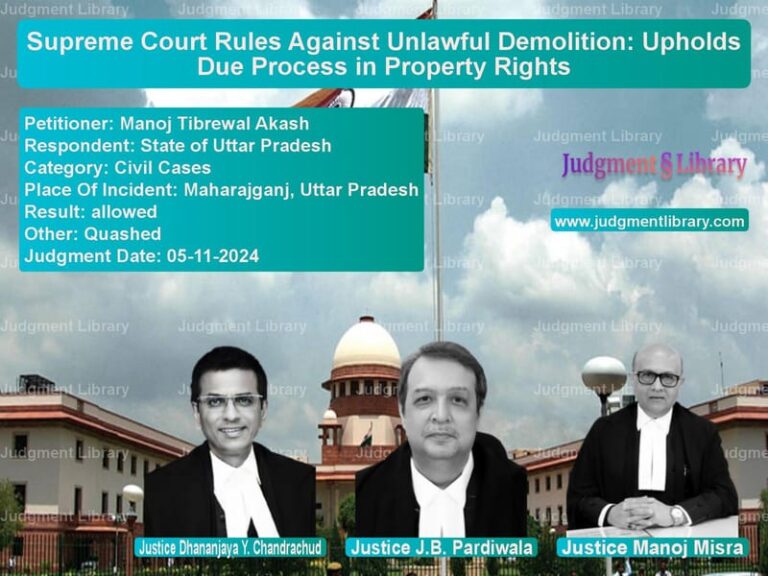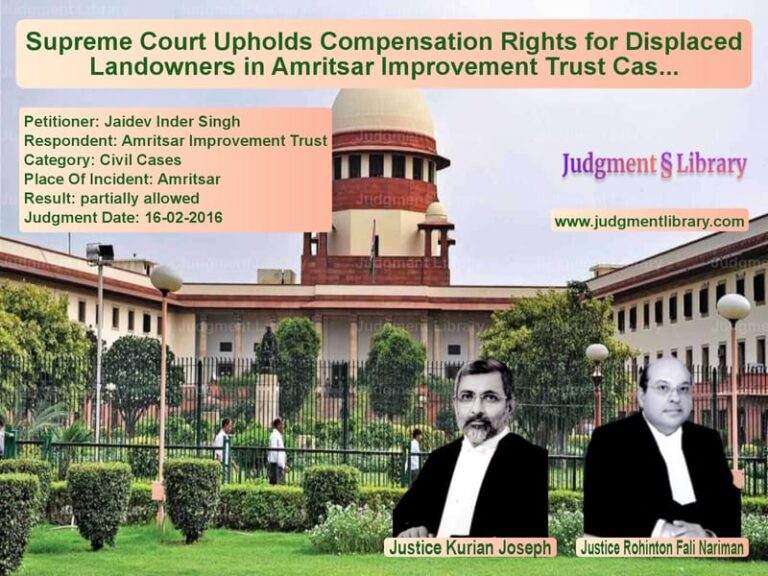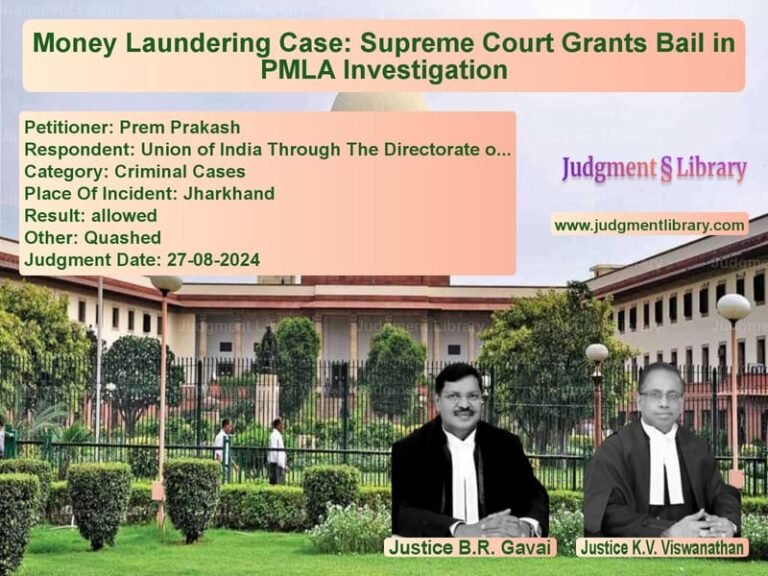Supreme Court Clarifies Probation Rules in Cruelty Case: Key Takeaways
The Supreme Court of India recently delivered a significant judgment in the case of Chellammal & Anr. vs State of Tamil Nadu, addressing important questions about the application of probation laws in cruelty cases under Section 498A of the Indian Penal Code. The judgment, delivered by Justices Dipankar Datta and Manmohan, provides crucial guidance on when courts should consider probation for offenders.
The case involved a mother-in-law and husband (the appellants) who were convicted under Section 498A IPC for subjecting the deceased wife/daughter-in-law to cruelty. While they were acquitted of the more serious charge of dowry death (Section 304B IPC), both trial court and High Court had sentenced them to imprisonment without considering probation options.
The Supreme Court made several important observations about probation laws. The bench noted: “What logically follows from a conjoint reading of sub-section (1) of Section 4 of the Probation Act and Section 361, Cr. PC is that if Section 360, Cr. PC were not applicable in a particular case, there is no reason why Section 4 of the Probation Act would not be attracted.”
The judgment provides a comprehensive analysis of the Probation of Offenders Act, 1958 and its relationship with Section 360 of CrPC. The Court observed: “Summing up the legal position, it can be said that while an offender cannot seek an order for grant of probation as a matter of right but having noticed the object that the statutory provisions seek to achieve by grant of probation… we hold that, unless applicability is excluded, in a case where the circumstances stated in sub-section (1) of Section 4 of the Probation Act are attracted, the court has no discretion to omit from its consideration release of the offender on probation.”
In this case, the Court noted several factors favoring probation consideration: the appellants had no criminal history, 17 years had passed since the incident without further offenses, and they had cared well for their now-adult daughter. The bench remanded the matter to the High Court for fresh consideration of probation after obtaining a probation officer’s report.
This judgment serves as an important reminder to courts about their duty to consider probation in appropriate cases, particularly for first-time offenders where imprisonment may not serve the interests of justice. The Supreme Court’s detailed analysis of probation laws provides valuable guidance for lower courts handling similar cases.
Petitioner Name: Chellammal And Another.Respondent Name: State Represented By The Inspector Of Police.Judgment By: Justice DIPANKAR DATTA, Justice MANMOHAN.Place Of Incident: Coimbatore, Tamil Nadu.Judgment Date: 22-04-2025.Result: partially allowed.
Don’t miss out on the full details! Download the complete judgment in PDF format below and gain valuable insights instantly!
Download Judgment: chellammal-and-anoth-vs-state-represented-by-supreme-court-of-india-judgment-dated-22-04-2025.pdf
Directly Download Judgment: Directly download this Judgment
See all petitions in Domestic Violence
See all petitions in Bail and Anticipatory Bail
See all petitions in Judgment by Dipankar Datta
See all petitions in Judgment by Manmohan
See all petitions in partially allowed
See all petitions in Remanded
See all petitions in supreme court of India judgments April 2025
See all petitions in 2025 judgments
See all posts in Criminal Cases Category
See all allowed petitions in Criminal Cases Category
See all Dismissed petitions in Criminal Cases Category
See all partially allowed petitions in Criminal Cases Category







